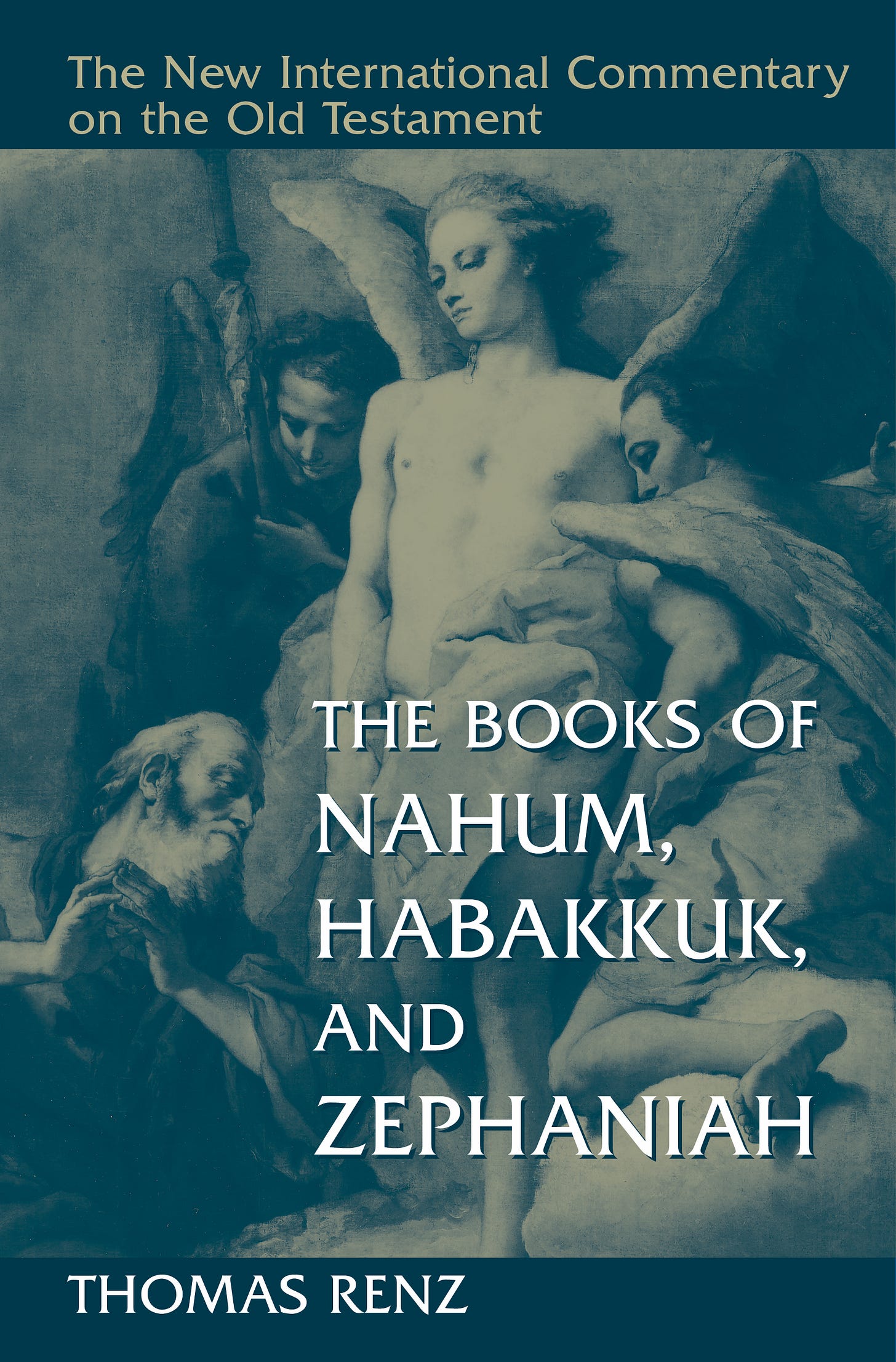Nahum, Habakkuk, and Zephaniah
Thomas Renz
The Books of Nahum, Habakkuk, and Zephaniah.
NICOT. Grand Rapids, MI: Eerdmans, 2021.
Reviewed by Dr. Andrew Judd (Ridley College)
I’m a big fan of the New International Commentary on the Old Testament series. Smart, evangelical, judicious in what details they include and what they leave out (looking at you WBC). This new volume by Thomas Renz replaces O Palmer Robertson’s 1990 tome, which was much loved but due for revision. It covers the same three books (Nahum, Habakkuk and Zephaniah) who are three minor prophets that deal with the transition of power between empires and where that leaves God’s people.
While Renz is not a big Book-of-the-Twelve-as-One-Single-Book devotee, he does a great job of both hearing the individual voices and reading the prophets in light of the canonical shape of the Twelve (and the New Testament, for that matter). As such, the 703 page volume begins with a separate introduction to the three books within their literary and historical context.
The commentary then moves on to the individual prophets, giving good attention to the literary shape of each book (Profile of the Book, Historical Setting, Rhetorical Function) and a close verse-by-verse reading (Text and Commentary). There is careful attention to the original context, canonical horizon as well as the history of interpretation and place in the church today.
Each giblet of text receives a translation with good notes based on the MT. This is followed by commentary on the composition of the section, and a verse by verse exposition. Again, the strength of the NICOT series is in the choice of what to comment on, and the quarter-to-half-page of footnotes to follow up if you so desire. There is then a reflection on what all this means, often with a brief Christian-themed reflection. As usual, the indexes are comprehensive and make this a superb reference work for intermediate study and diligent sermon-preparation.
I am very glad to see this excellent series continue to receive the love and attention of excellent scholars and pastor-teachers like Renz.




